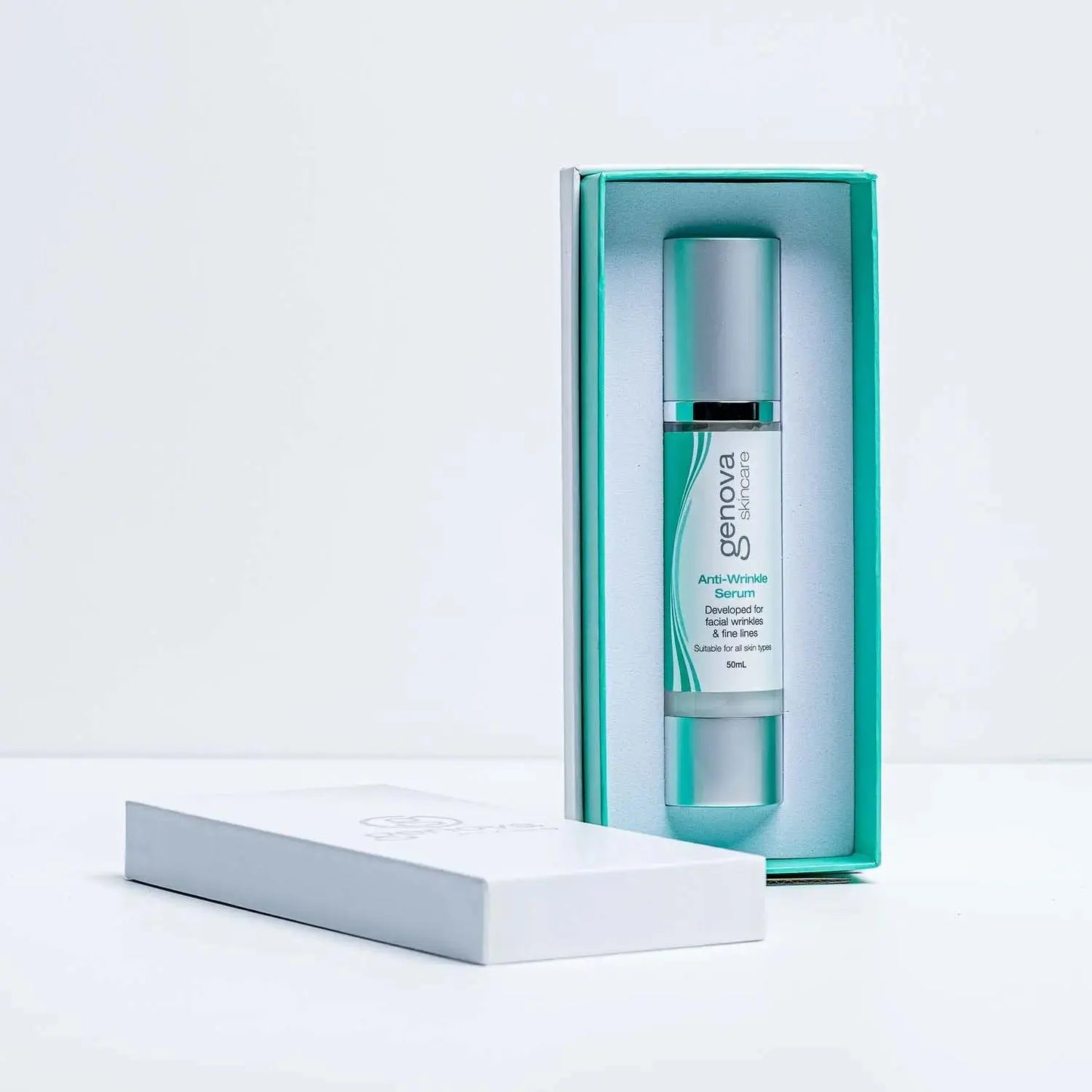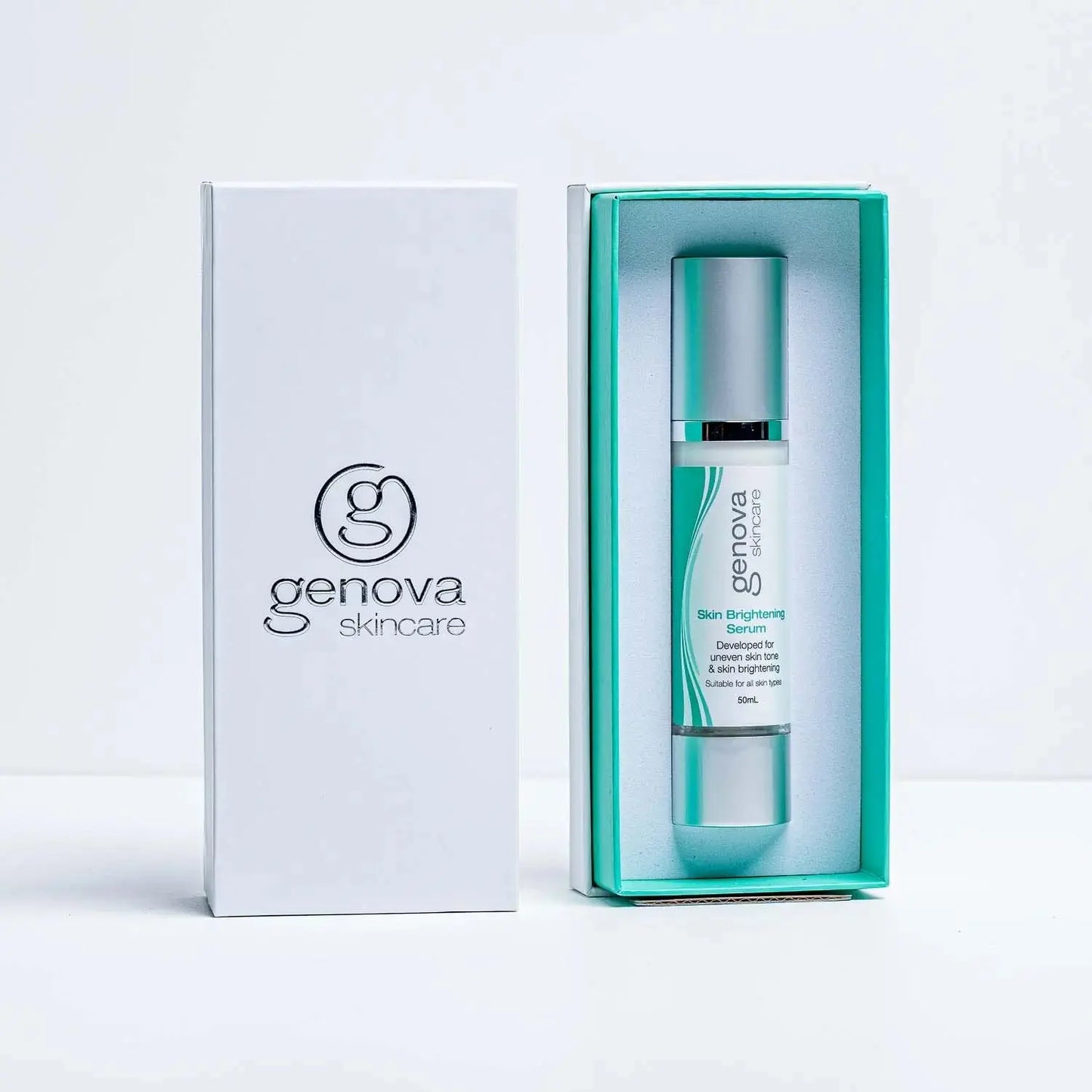The Gut-Skin Connection: How Improving Digestive Health Can Transform Menopausal Skin
What Your Gut Has to Do With Your Changing Skin
Have you noticed that despite investing in premium serums and moisturisers, your skin still lacks the same resilience and glow it once did? If you’re navigating the menopausal transition, the answer to your skincare concerns might not be found in another jar or bottle—but rather in your digestive system.
The connection between gut health and skin appearance has become one of the most reassuring research areas in women’s health, particularly for those experiencing menopause. This invisible yet powerful relationship might be the missing link that brings hope to your skincare routine.
Why Menopause Creates the Perfect Storm for Skin Changes
During menopause, your body undergoes a cascade of changes that affect both your gut microbiome and your skin:
First, estrogen levels decline, which doesn’t just trigger hot flashes and mood swings—it also affects digestive function and the bacterial balance in your gut. This hormonal shift simultaneously impacts collagen production, skin hydration, and barrier function.
“I spent hundreds on expensive creams after hitting perimenopause, but nothing seemed to help my dry, irritated skin,” shares Melinda, 52. “It wasn’t until I addressed my digestive issues that I started seeing real improvement in my complexion.”
This experience isn’t uncommon. The gut-skin axis—the bidirectional communication pathway between your digestive system and skin—becomes increasingly significant during hormonal transitions.

The Science Behind Your Gut’s Influence on Menopausal Skin
Recent research has uncovered several mechanisms through which your gut health directly impacts the appearance of your skin during menopause:
Inflammation Regulation
Your gut microbiome plays a crucial role in managing inflammation throughout your body. When gut bacteria are imbalanced—dysbiosis—inflammatory markers increase, potentially triggering or worsening skin conditions like rosacea, eczema, and accelerated skin ageing.
This becomes particularly relevant during menopause when your body naturally experiences higher oxidative stress and inflammation. A healthy gut can help counterbalance these effects, potentially reducing the visible signs of aging that seem to accelerate during this time.
Nutrient Absorption
Even with a perfect diet rich in skin-supporting nutrients, poor gut health can prevent these beneficial compounds from reaching your skin cells. Essential fatty acids, antioxidants, vitamins, and minerals require proper digestive function to absorb and effectively use for skin repair and maintenance.
Hormone Metabolism
Your gut bacteria influence how hormones - including estrogen, are metabolised and recycled in your body. This relationship, known as the astrobleme, becomes significant during menopause when natural estrogen production declines.
Five Practical Strategies to Improve Your Gut Health for Better Skin
1. Diversify Your Plant Intake
Research suggests that women who consume at least 30 different plant foods weekly have more diverse gut microbiomes, which correlates with healthier skin.
Try this: Create a weekly plant diversity challenge for yourself. Include vegetables, fruits, legumes, nuts, seeds, herbs, and spices in your count. Even small amounts contribute to your microbial diversity.
2. Incorporate Fermented Foods Daily
Fermented foods provide natural probiotics that can help restore balance to your gut microbiome.
“Adding a small serving of kimchi to my lunch each day was one simple change that made a noticeable difference in both my digestive comfort and my skin clarity,” notes Jennifer, 54, who experienced significant skin improvements three months into menopause by focusing on gut health.
Aim for one serving daily of yoghurt with live cultures, kefir, kombucha, sauerkraut, or kimchi.

3. Focus on Prebiotic-Rich Foods
Prebiotics are specialised plant fibres that feed your beneficial gut bacteria. They’re found in:
- Slightly underripe bananas
- Jerusalem artichokes
- Garlic and onions
- Leeks
- Asparagus
- Oats
These foods fuel your gut bacteria to thrive and produce beneficial compounds that support skin health.
4. Manage Stress Effectively
The gut-brain-skin axis means that psychological stress directly impacts gut function and skin appearance—a connection that becomes even more pronounced during menopause, when stress resilience may naturally decrease.
Regular stress management practices, such as meditation, yoga, or simply scheduled relaxation time, can significantly improve gut health and skin appearance.
5. Consider Targeted Supplements
While food should form the foundation of your gut health strategy, certain supplements may provide additional support:
- A high-quality probiotic containing Lactobacillus and Bifidobacterium strains
- Digestive enzymes, if you experience bloating or discomfort after meals
- Omega-3 fatty acids, which support both gut barrier integrity and skin hydration
- Collagen peptides combined with vitamin C for improved absorption

Actual Results: Timeline for Improvement
Unlike topical products that may provide immediate cosmetic benefits, addressing skin through gut health requires patience:
- Weeks 1-2: You may notice improved digestive comfort and reduced bloating
- Weeks 3-4: Subtle improvements in skin hydration and reduced redness
- Weeks 6-8: More noticeable changes in skin texture and resilience
- Months 3-6: Significant improvement in overall skin appearance and radiance
“It took about two months of consistent effort with my gut health before I saw dramatic changes in my skin,” shares Caroline, 56. “But the improvements were beyond what any cream had ever done for me—my friends started asking what skincare I was using!”
Beyond Beauty: The Wider Benefits
The beauty of addressing gut health for skin improvement is that the benefits extend far beyond appearance. Women who focus on digestive wellness during menopause often report:
- Improved energy levels
- Better sleep quality
- Reduced joint discomfort
- More stable mood
- Fewer digestive complaints like bloating and irregularity
A Complementary Approach
Improving gut health doesn’t mean abandoning your skincare routine. Instead, it creates a foundation for your topical products to work more effectively. When your skin is nourished from within, it becomes more responsive to external treatments.
The most effective approach combines:
- Internal support through gut-friendly nutrition
- Quality topical products appropriate for menopausal skin
- Lifestyle practices that support overall wellbeing
Your First Steps Toward Gut-Skin Harmony
Ready to harness the power of the gut-skin connection? Start with these simple actions:
- Begin tracking your plant diversity intake
- Add one fermented food to your daily routine
- Stay adequately hydrated throughout the day
- Pay attention to how different foods affect both your digestion and skin
- Be patient and consistent—this is a long-term strategy for lasting results
Remember that the journey through menopause offers an opportunity to redefine your approach to beauty and wellness. By nurturing your gut health, you’re not just improving your skin—you’re supporting your body’s resilience during this significant transition.
Has your menopausal experience included changes in both your digestive function and skin? What approaches have you found helpful? Share your journey in the comments below and build a supportive community.








